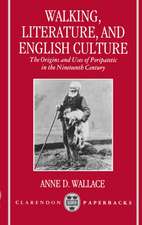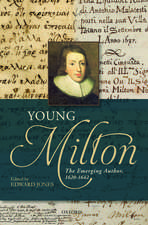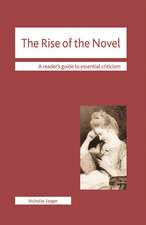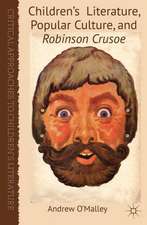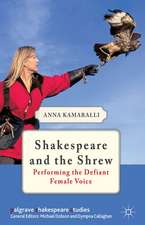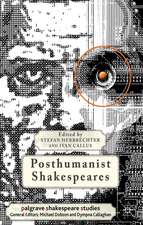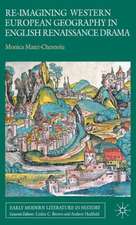Cervantine Journeys
Autor Steven D. Hutchinsonen Limba Engleză Paperback – 14 oct 1992
Hutchinson focuses initially on movement as concept and metaphor, affirming its centrality in the conceptualization of all discursive activities. He draws on an array of authors including Heraclitus, Plato, Longinus, Rabelais, Nietzsche, Saussure, Frances Yates, Kristeva, Meschonnic, and Deleuze to demonstrate the "motion" of discourse and of those engaged in it. He then turns to Cervantes' novels to show how metaphors of movement and travel, appearing on nearly every page, dominate the conceptualization of the soul, the self, desire, love, and life processes. Viewing travel as a composite of concurrent modes of experience with differing content and rhythms, Hutchinson considers the concept of errancy, the nature of "place" and the traveler's shifting relations with it, and the values that travel may have as a motion, displacement, encounter, and goal. Of key importance are the means of improvisation developed en route. His re-examination of Bakhtin's "chronotope" in light of Cervante's novels reveals the dynamic character of time-spaces in which travelers move. He shows, moreover, that unlike typical Renaissance utopias the many worlds of Cervantes' novels have the principles of becoming and dissolution inscribed in them.
Reflecting on the narrative of journeys both as memory and invention, Hutchinson concludes with an examination of the relations between travel experience and travel narrative and a discussion of the whereabouts of writers and readers in Cervantes' novels. The narration of journeys, he argues, necessitates and encourages improvisatory writing.
Reflecting on the narrative of journeys both as memory and invention, Hutchinson concludes with an examination of the relations between travel experience and travel narrative and a discussion of the whereabouts of writers and readers in Cervantes' novels. The narration of journeys, he argues, necessitates and encourages improvisatory writing.
Preț: 93.19 lei
Nou
Puncte Express: 140
Preț estimativ în valută:
17.83€ • 19.37$ • 14.98£
17.83€ • 19.37$ • 14.98£
Carte disponibilă
Livrare economică 01-15 aprilie
Preluare comenzi: 021 569.72.76
Specificații
ISBN-13: 9780299134846
ISBN-10: 0299134849
Pagini: 256
Dimensiuni: 152 x 229 x 18 mm
Greutate: 0.39 kg
Ediția:New.
Editura: University of Wisconsin Press
Colecția University of Wisconsin Press
ISBN-10: 0299134849
Pagini: 256
Dimensiuni: 152 x 229 x 18 mm
Greutate: 0.39 kg
Ediția:New.
Editura: University of Wisconsin Press
Colecția University of Wisconsin Press
Recenzii
Recognizing that journey and movement are vital not only to the novelistic enterprise of Cervantes but to much of world literature as well, Steven Hutchinson develops a problematic view of movement and the journey in relation to literature and discourse. Contending that most twentieth-century literary theory and criticism have attempted to ignore or suppress mobility and change, he sketches out some ways in which discourse deploys movement and the journey.
Notă biografică
Steven Hutchinson is professor in the Department of Spanish and Portuguese at the University of Wisconsin–Madison.
Descriere
Hutchinson focuses initially on movement as concept and metaphor, affirming its centrality in the conceptualization of all discursive activities. He draws on an array of authors including Heraclitus, Plato, Longinus, Rabelais, Nietzsche, Saussure, Frances Yates, Kristeva, Meschonnic, and Deleuze to demonstrate the "motion" of discourse and of those engaged in it. He then turns to Cervantes' novels to show how metaphors of movement and travel, appearing on nearly every page, dominate the conceptualization of the soul, the self, desire, love, and life processes. Viewing travel as a composite of concurrent modes of experience with differing content and rhythms, Hutchinson considers the concept of errancy, the nature of "place" and the traveler's shifting relations with it, and the values that travel may have as a motion, displacement, encounter, and goal. Of key importance are the means of improvisation developed en route. His re-examination of Bakhtin's "chronotope" in light of Cervante's novels reveals the dynamic character of time-spaces in which travelers move. He shows, moreover, that unlike typical Renaissance utopias the many worlds of Cervantes' novels have the principles of becoming and dissolution inscribed in them.
Reflecting on the narrative of journeys both as memory and invention, Hutchinson concludes with an examination of the relations between travel experience and travel narrative and a discussion of the whereabouts of writers and readers in Cervantes' novels. The narration of journeys, he argues, necessitates and encourages improvisatory writing.
Reflecting on the narrative of journeys both as memory and invention, Hutchinson concludes with an examination of the relations between travel experience and travel narrative and a discussion of the whereabouts of writers and readers in Cervantes' novels. The narration of journeys, he argues, necessitates and encourages improvisatory writing.



